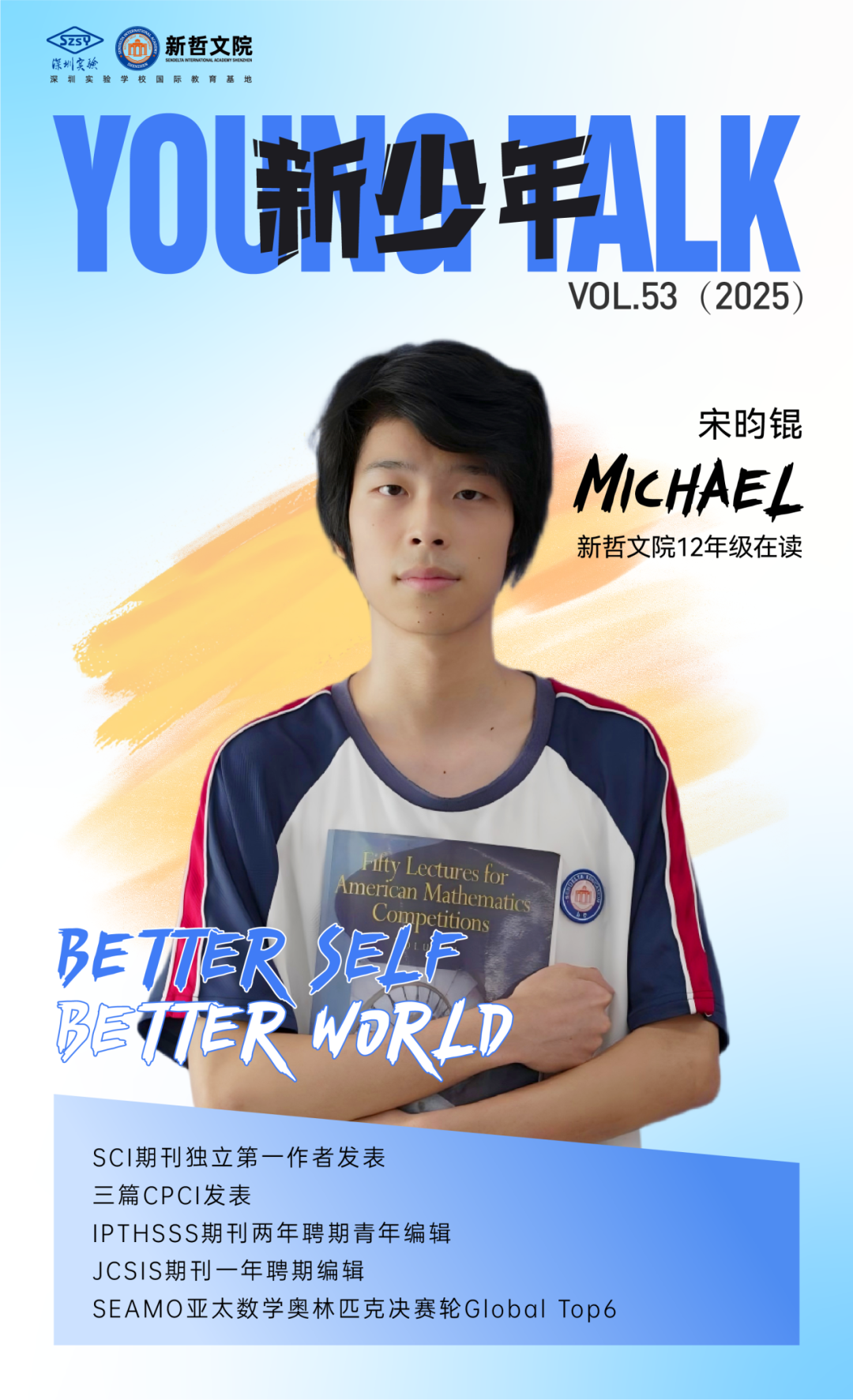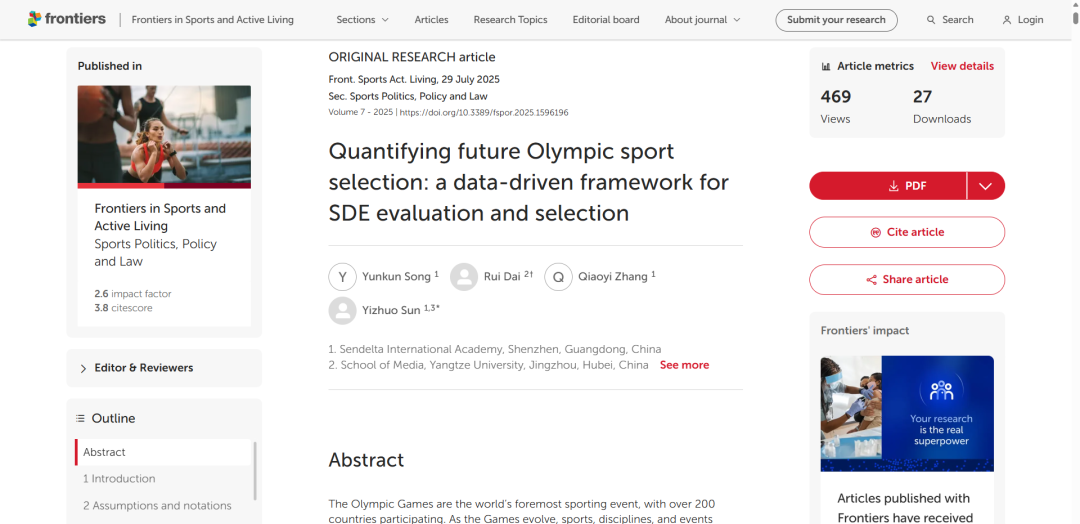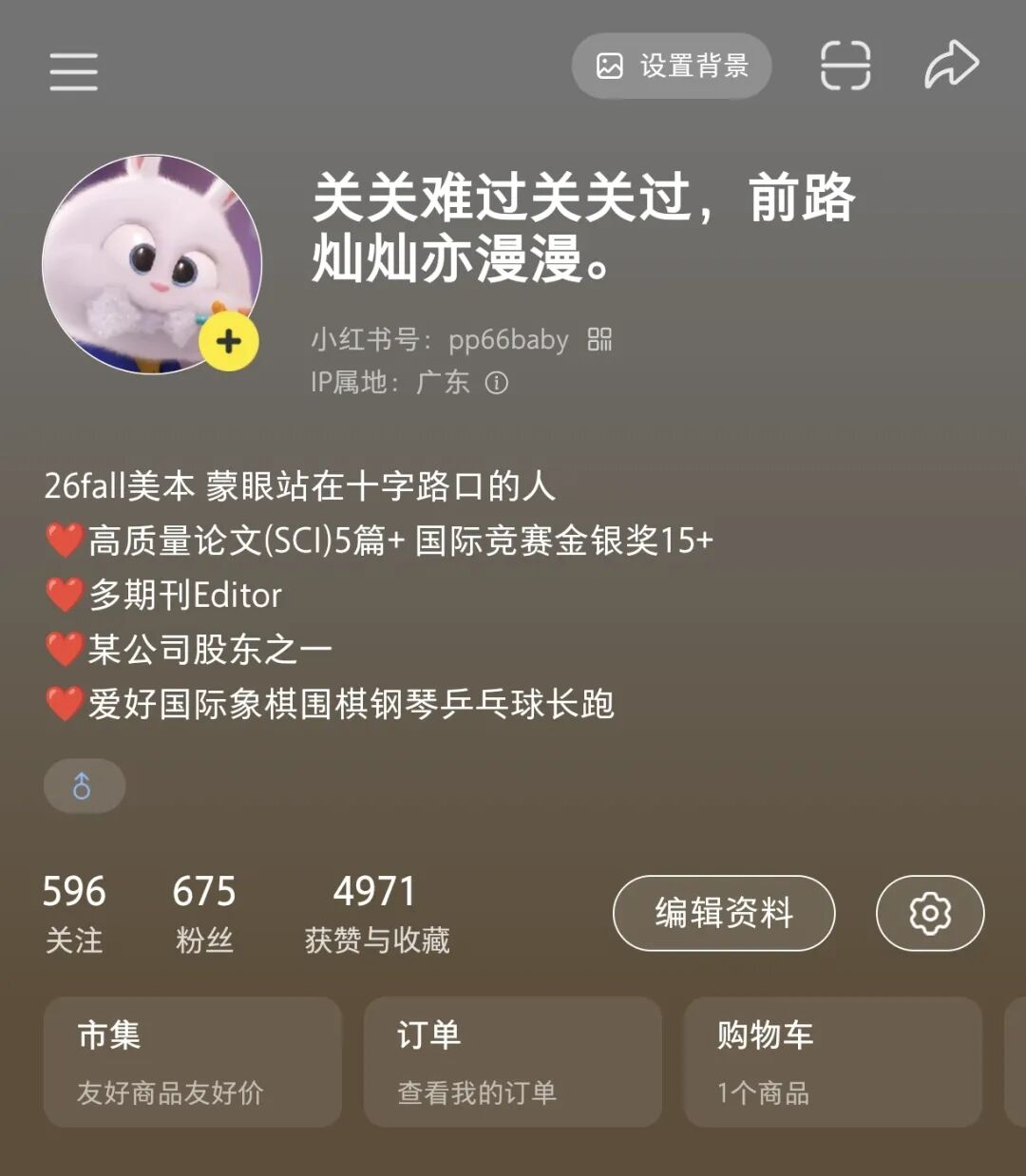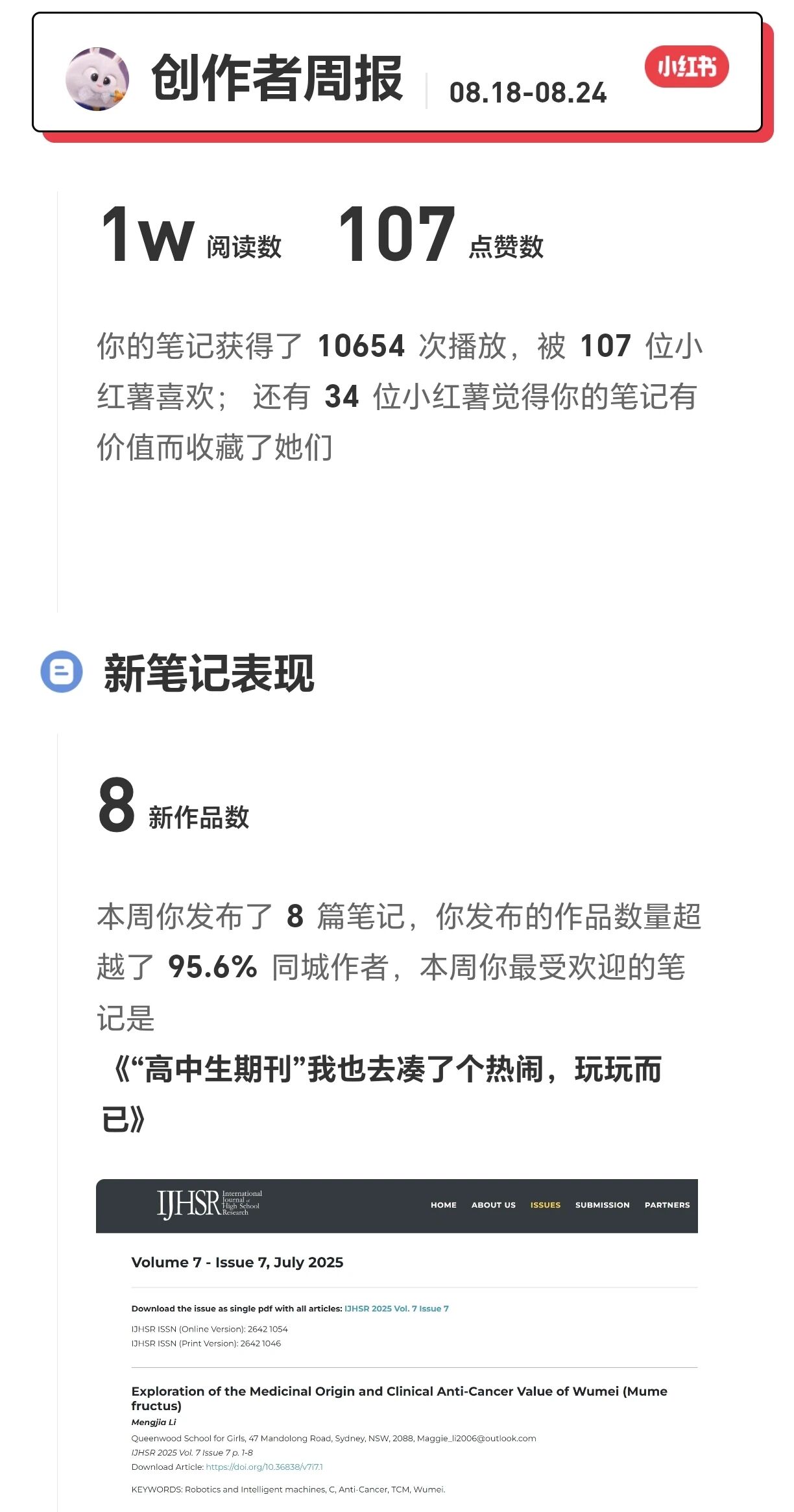

In
junior high, Michael was trapped in the anxiety of Shenzhen’s senior
high school admission, worrying daily about poor exam performance.
Scoring 545 in the entrance exam, he missed his preferred schools and
was assigned to a backup one. At this life crossroads, he and his
parents decided to switch to the international education track—and
Sendelta became the starting point of his breakthrough.
Today,
Michael is not only the sole first author of papers in international
journals, but also a social media blogger and a "research tutor" to
peers. In this issue of [Young Talk Vol.53], let’s explore the story of
Michael Song, a Grade 12 student at Sendelta. 01 When
Michael first arrived at Sendelta, he admitted feeling "a bit
inferior": "Many classmates had a better English foundation, and I
initially struggled to keep up." But he soon noticed the difference
here—no teacher labeled students by grades; instead, diverse interests
and strengths were valued. This tolerance gave him the courage to turn
his interest in social sciences and data into action.
In
Grade 11, he approached Dr. Sun from Sendelta’s Research and Innovation
Center with the idea of "predicting new Olympic events." Dr. Sun
immediately helped him organize the research framework—from topic
selection, literature review, data processing, and model analysis to
polishing the paper’s logic. They met one-on-one almost every week, with
Dr. Sun even checking the format of references line by line.
With
Dr. Sun’s guidance, Michael published his paper as the sole first
author in Frontiers in Sports and Active Living, a leading global
journal in sports science.
▲Michael的论文
Michael’s
research journey didn’t end there: he also published papers as a second
author and corresponding author, and took on the role of a research
mentor.
Beyond
publishing, he works as a journal editor—assisting with submissions,
reviews, and formatting at IPTHSSS (under Wisvora Publishing) and
Journal of Current Social Issues Studies (JCSIS, published by the Asian
Academy of Technology and Research). Michael said, "I probably wouldn’t
have time for these experiences without switching to international
education." 02 If
research is Michael’s "core strength," his other pursuits are equally
impressive—on Xiaohongshu, he is a blogger sharing study-abroad tips.
Like
many Gen-Zers, Michael embraces social media and loves sharing his
experiences. His account now has nearly 700 followers, with posts
accumulating over 200,000 views.

▲Michael的小红书账号
Michael
expresses himself freely, often sparking debates in the comment
section—which he finds fascinating: "It’s like a ‘window to observe
society.’"
For
Michael, "searching, organizing, and sharing information" is a natural
passion. Keen on study-abroad updates, he launched a dedicated Friday
morning campus radio show—handling everything from scriptwriting to
hosting the 10-minute "Study-Abroad News" to benefit more classmates.
Besides
information sharing, Michael is enthusiastic about competitions hosted
by foreign universities, including math competitions at Stanford and UC
Berkeley, and a chemistry competition at the University of Washington. 03 Looking
back on his growth, Michael said, "I got many pitfalls and seized
opportunities." Here’s his advice for younger students on publishing
papers: 1. Publishing isn’t as hard as it seems—just be brave to try! 2.Databases and anti-scam tips Must-use databases: Web of Science, Google Scholar, CNKI/Wanfang/Weipu. Anti-scam
guide: Verify a journal’s authenticity by checking its ISSN number on
the official international ISSN website; then search the journal name on
Google Scholar—no results likely mean it’s a "low-quality journal." 3.Don’t miss "editor roles"—growth is faster than expected "After
publishing your paper, try applying for high school student editor
positions at publishing houses. Reviewing papers exposes you to diverse
research fields, which broadens your mind more than just writing your
own papers." 04 At
the end of the interview, Michael said, "Without Sendelta, I might
still be trapped by exam scores." Here, he no longer worries about "one
bad exam"; instead, he learns to appreciate his own and classmates’
strengths beyond grades—because Sendelta’s evaluation system is never
"grade-only."
"Many
think ‘high school students publishing in SCI is impossible,’ but
research from competitions or class projects can be turned into papers.
I’ve been rejected many times, but revisions led to success."
Michael’s
transformation from "involution stress" to "multi-dimensional growth"
is no accident. It stems from Sendelta’s educational philosophy of
"academic achievement, happiness, and sustainable development," the
professional support of the Research and Innovation Center’s PhD team,
and its sunny, inclusive atmosphere.
This
is perhaps the most beautiful form of education: letting every child
break free from constraints and run steadily and far on their own path.